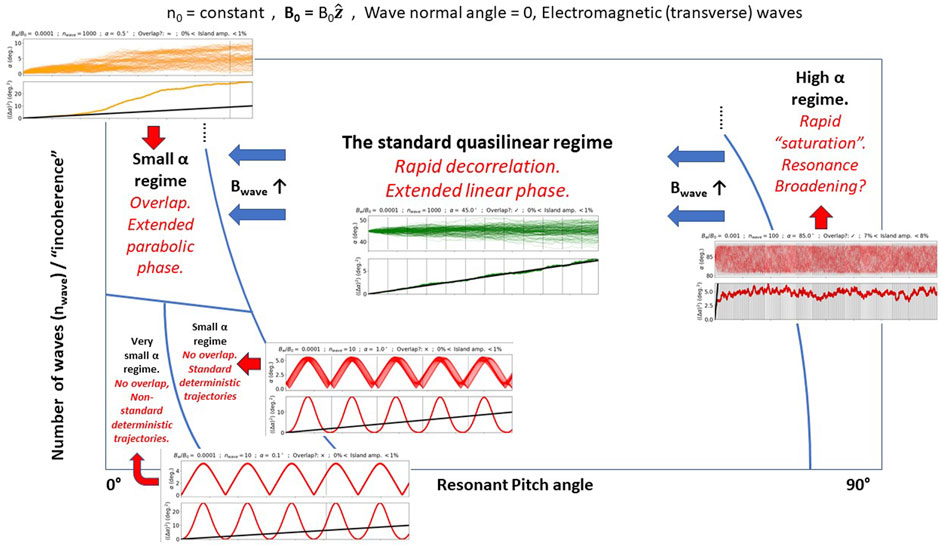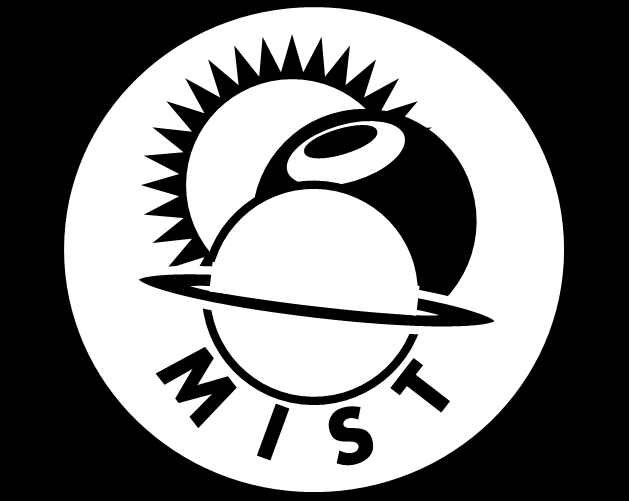MIST
Magnetosphere, Ionosphere and Solar-Terrestrial
The challenge to understand the zoo of particle transport regimes during resonant wave-particle interactions for given survey-mode wave spectra
By Oliver Allanson (University of Birmingham; University of Exeter)
Quasilinear theories have been shown to well describe a range of transport phenomena in magnetospheric, space, astrophysical and laboratory plasma “weak turbulence” scenarios. It is well known that the resonant diffusion quasilinear theory for the case of a uniform background field may formally describe particle dynamics when the electromagnetic wave amplitude and growth rates are sufficiently “small”, and the bandwidth is sufficiently “large”.
However, it is important to note that for a given wave spectrum that would be expected to give rise to quasilinear transport, the theory may apply for a given range of resonant pitch-angles and energies, but may not apply for some smaller, or larger, values of resonant pitch-angle and energy. That is to say that the applicability of the quasilinear theory can be pitch-angle dependent, even in the case of a uniform background magnetic field. If indeed the quasilinear theory does apply, the motion of particles with different pitch-angles are still characterised by different timescales.
Using a high-performance test-particle code, we present a detailed analysis of the applicability of quasilinear theory to a range of different wave spectra that would otherwise “appear quasilinear” if presented by e.g., satellite survey mode data. We present these analyses as a function of wave amplitude, wave coherence and resonant particle velocities (energies and pitch-angles). In doing so, we identify and classify five different transport regimes (see figure) that are a function of particle pitch-angle.
The results in our paper demonstrate that there can be a significant variety of particle responses (as a function of pitch angle) for very similar looking survey-mode electromagnetic wave products, even if they appear to satisfy all appropriate quasilinear criteria.
In recent years there have been a sequence of very interesting and important results in this domain, and we argue in favour of continuing efforts on: (i) the development of new transport theories to understand the importance of these, and other, diverse electron responses; (ii) which are informed by statistical analyses of the relationship between burst- and survey-mode spacecraft data.

For full details see https://doi.org/10.3389/fspas.2024.1332931
